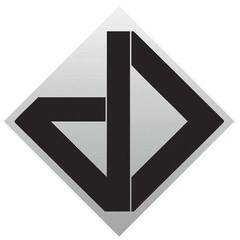Linux sucks for gaming and this will probably never change
GNU/Linux distros will never be a serious candidate for a gaming platform. I don't get how Valve feels positive with the steamdeck, especially since SteamOS 2.0 is a failed and abandoned project.
Anyway, the reason that desktop Linux sucks as a gaming platform is that gaming requires most of the code used in Games, (game-related) Tools and Drivers to be closed source. This is done because of competitive issues (for example Nvidia drivers) or to prevent cheating. That being said, Linux is the greatest OS when it comes to Server use, because most tools when it comes to networking are open source anyway.
It's not like that was an accident or something. Microsoft did not accidentally become number one on PCs for no reason. MS provides a stable API/ABI for Windows, thorough documentation, official Frameworks, SDKs, etc. On top of that, they offer the most incredible backwards compatibility even seen on computing (they have to though, because of Windows being the most used OS in most industries).
GNU/Linux on the other hand, ties software compilation to specific kernel and libc versions, a single tiny change in those versions break everything, and needs every app re-compiled. This is not a problem for open source apps (most distros re-compile packages automatically), but is a hell for maintaining closed-source software. That's why many companies that started to release Linux binaries for their (closed source) apps gave up eventually. To be fair, Flatpak/Snap tries to fix this problem.
Even when it comes to the kernel, Linux was never made with the intention of using closed source drivers. It works best when it gets to work with all required drivers within the kernel. Even closed source drivers are kind of a temporary fix, as loading modules is not recommended! Even Linus Torvalds himself said that closed source binaries are NOT welcome, and whoever chooses to uses them are on their own [trying to find the source for that].******
Now, as a gaming developer or a software company, would you choose a hostile environment like Linux, or a welcoming one like Windows for your Game releases?
Disclaimer: Emphasis on "GNU/Linux" throughout the post. The kernel as it is, can be useful for "Linux-based" projects like Android, that fixes most of said problems (with the exception of drivers, that's why you don't get Android upgrades indefinitely on your phone, hardware manufacturers like Mediatek or Qualcomm don't bother to make new drivers every time the kernel changes).
****EDIT:
"In the Linux kernel development community, Linus Torvalds has made strong statements on the issue of binary-only modules, asserting: "I refuse to even consider tying my hands over some binary-only module", and continuing: "I want people to know that when they use binary-only modules, it's THEIR problem."


















Create an account or sign in to comment
You need to be a member in order to leave a comment
Create an account
Sign up for a new account in our community. It's easy!
Register a new accountSign in
Already have an account? Sign in here.
Sign In Now